37 Top Quotes By A. R. Ammons
Archie Randolph Ammons was an American poet, novelist and essayist. he was awarded the reputed National Book of Award for poetry. He specialized in writing about subjects pertaining to relationship between nature and humanity while attributing humor and awe-inspiring tones. His poetry preached transcendental mixture of religious and philosophical matters garnished with the complex relationship of nature and the soul. He went on to receive accolades such as National Book Critics Circle Award and Bollingen Prize for Poetry for his work in A Coast of Trees and Sphere: The Form of a Motion respectively. He received the most restigious 'National Book of Award' for poetry twice for his works Collected Poems and Garbage. His prominent prose writing works include Set in Motion: Essays, Interviews, and Dialogues (1996) and An Image for Longing: Selected Letters and Journals of A.R. Ammon. While many critics applaud the work of Ammons, some accuse of his work in familiar lines with Emerson, Whitman and Emily Dickinson. Let us go through some of the famous quotes from this legendary American poet, highlighting his thoughts and sayings
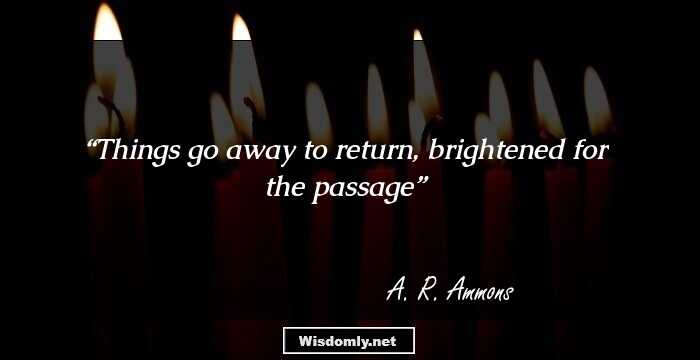
Things go away to return, brightened for the passage
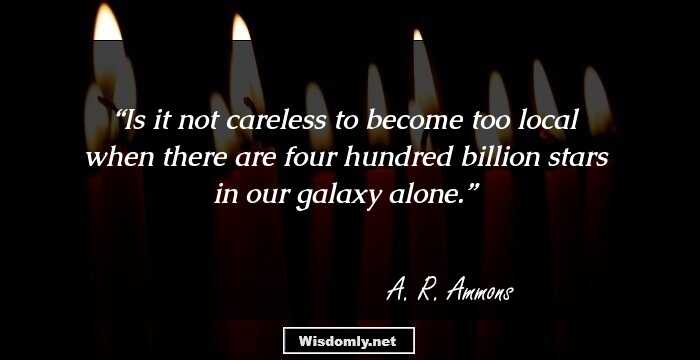
Is it not careless to become too local when there are four hundred billion stars in our galaxy alone.
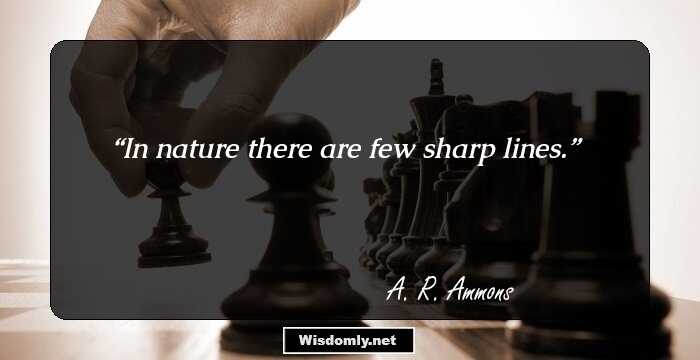
In nature there are few sharp lines.

Only silence perfects silence.

You have your identity when you find out, not what you can keep your mind on, but what you can't keep your mind off.
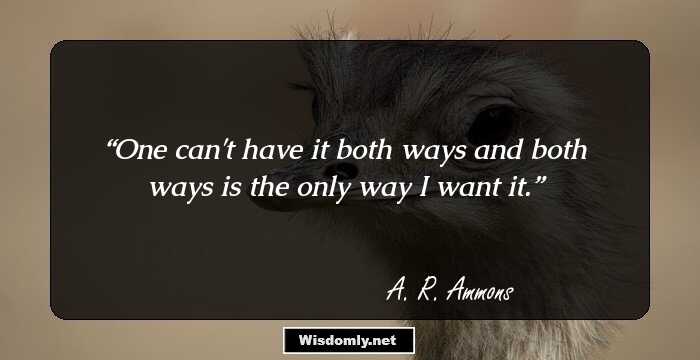
One can't have it both ways and both ways is the only way I want it.
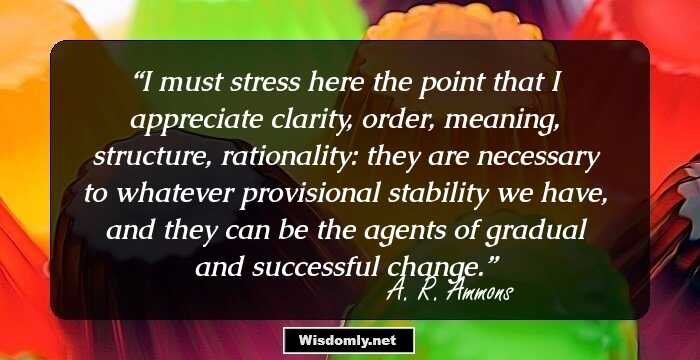
I must stress here the point that I appreciate clarity, order, meaning, structure, rationality: they are necessary to whatever provisional stability we have, and they can be the agents of gradual and successful change.
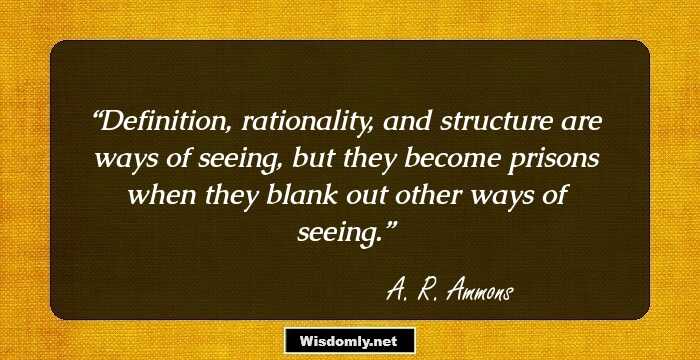
Definition, rationality, and structure are ways of seeing, but they become prisons when they blank out other ways of seeing.
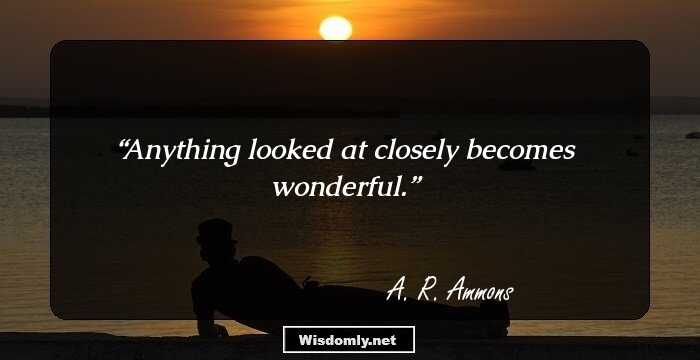
Anything looked at closely becomes wonderful.
Even if you walk exactly the same route each time - as with a sonnet - the events along the route cannot be imagined to be the same from day to day, as the poet's health, sight, his anticipations, moods, fears, thoughts cannot be the same.
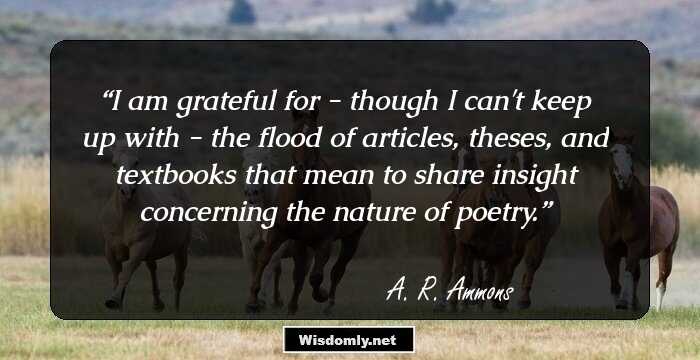
I am grateful for - though I can't keep up with - the flood of articles, theses, and textbooks that mean to share insight concerning the nature of poetry.
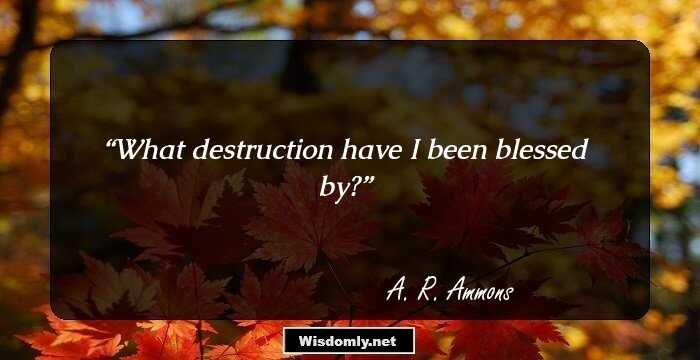
What destruction have I been blessed by?
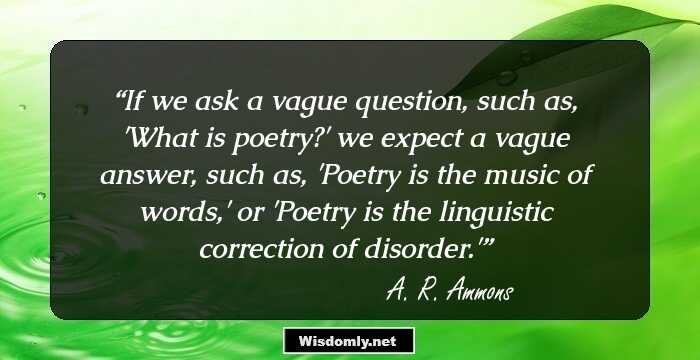
If we ask a vague question, such as, 'What is poetry?' we expect a vague answer, such as, 'Poetry is the music of words,' or 'Poetry is the linguistic correction of disorder.'
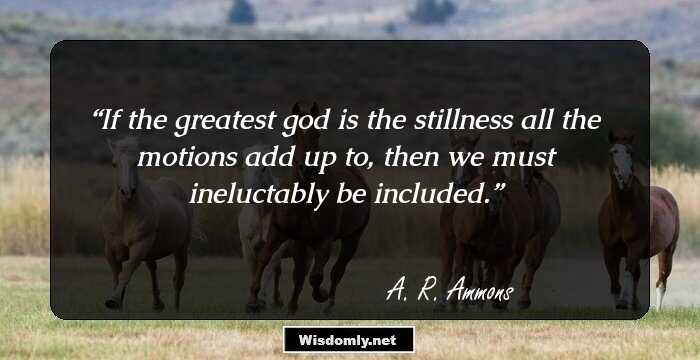
If the greatest god is the stillness all the motions add up to, then we must ineluctably be included.
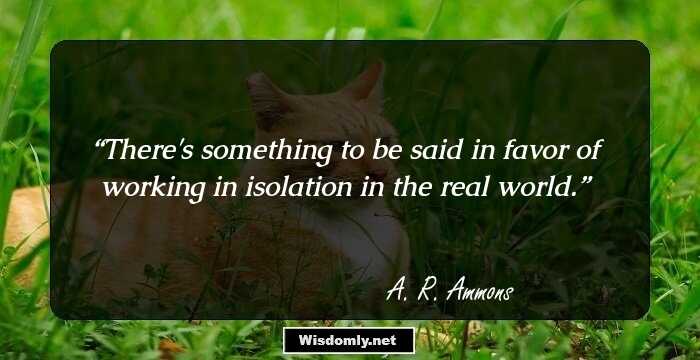
There's something to be said in favor of working in isolation in the real world.
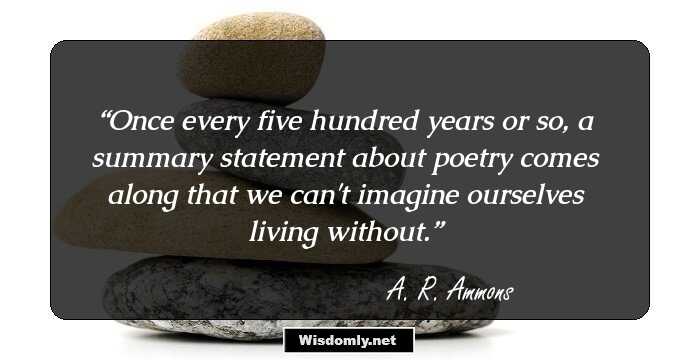
Once every five hundred years or so, a summary statement about poetry comes along that we can't imagine ourselves living without.
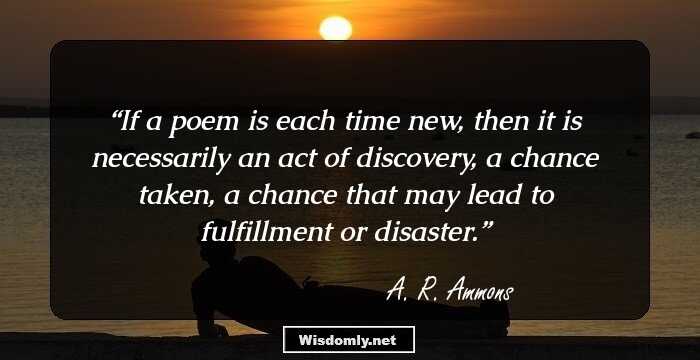
If a poem is each time new, then it is necessarily an act of discovery, a chance taken, a chance that may lead to fulfillment or disaster.
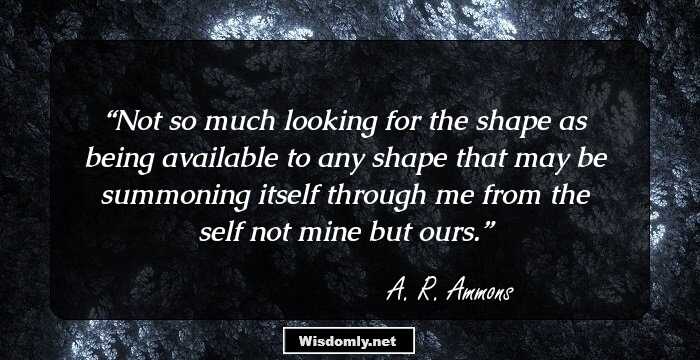
Not so much looking for the shape as being available to any shape that may be summoning itself through me from the self not mine but ours.
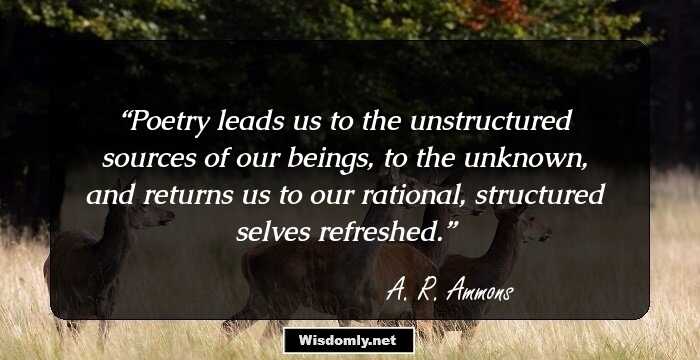
Poetry leads us to the unstructured sources of our beings, to the unknown, and returns us to our rational, structured selves refreshed.
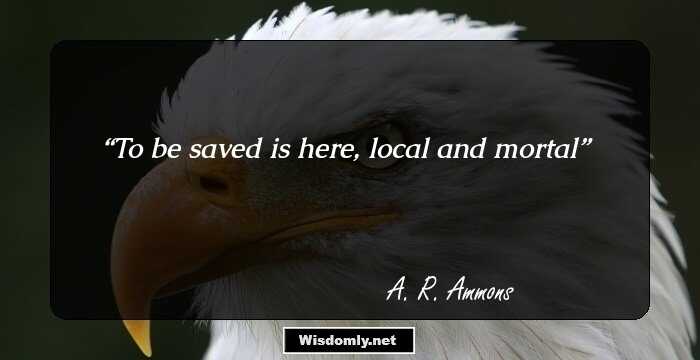
To be saved is here, local and mortal
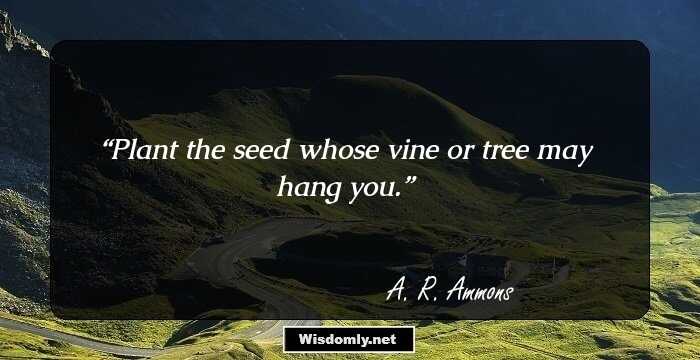
Plant the seed whose vine or tree may hang you.
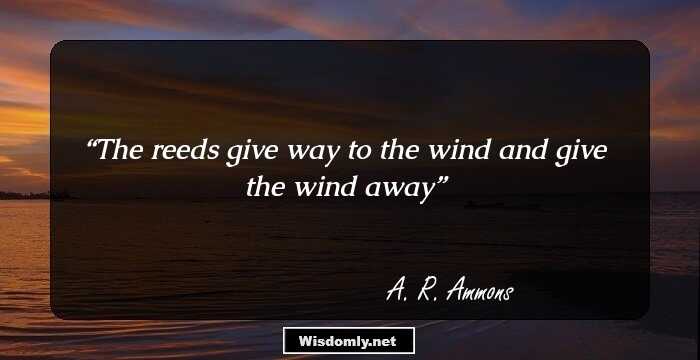
The reeds give way to the wind and give the wind away
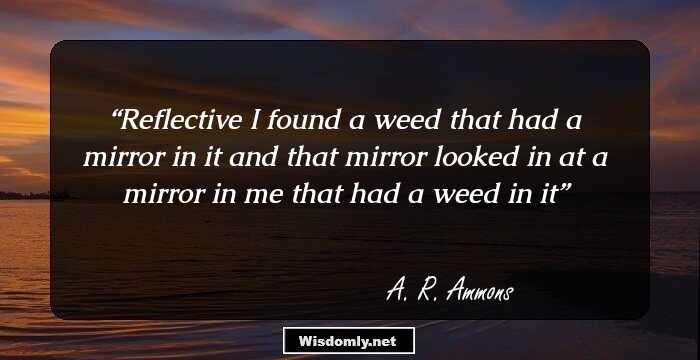
Reflective I found a weed that had a mirror in it and that mirror looked in at a mirror in me that had a weed in it
Besides the actual reading in class of many poems, I would suggest you do two things: first, while teaching everything you can and keeping free of it, teach that poetry is a mode of discourse that differs from logical exposition.

Everything is discursive opinion instead of direct experience.

The oppressed grows weightless: doze/n th/rough c/and/or man/aged leg/ions stud/ents
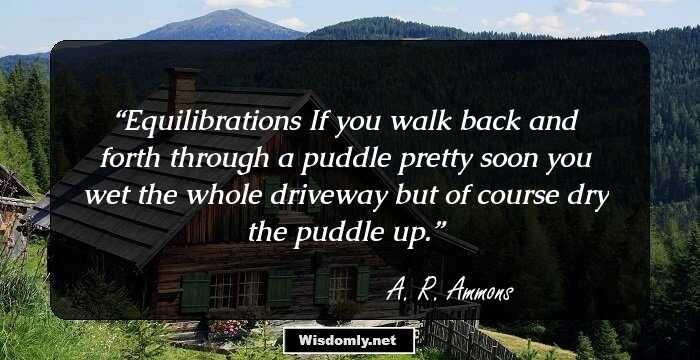
Equilibrations If you walk back and forth through a puddle pretty soon you wet the whole driveway but of course dry the puddle up.
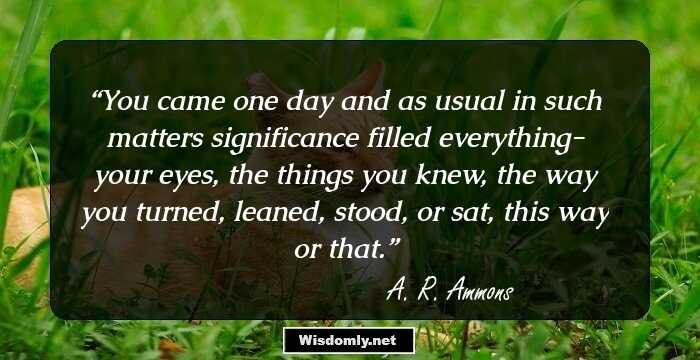
You came one day and as usual in such matters significance filled everything- your eyes, the things you knew, the way you turned, leaned, stood, or sat, this way or that.
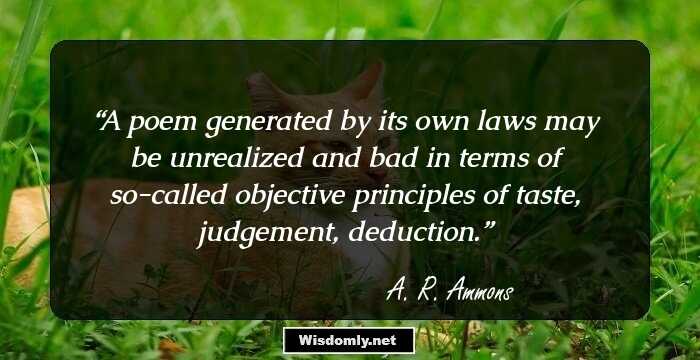
A poem generated by its own laws may be unrealized and bad in terms of so-called objective principles of taste, judgement, deduction.
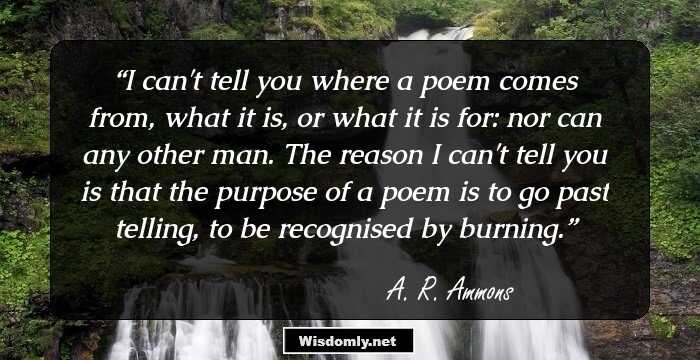
I can't tell you where a poem comes from, what it is, or what it is for: nor can any other man. The reason I can't tell you is that the purpose of a poem is to go past telling, to be recognised by burning.










